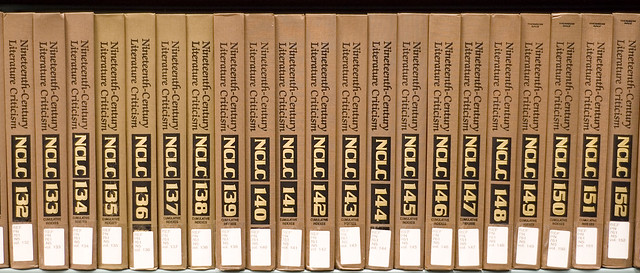
 Browse in the
Browse in the
section for books by and about American authors, or search the online catalog
 American Writers ; A Collection of Literary Biographies, 4 main volumes and 18 supplements
American Writers ; A Collection of Literary Biographies, 4 main volumes and 18 supplements
 Oxford Encyclopedia of American Literature, 4 volumes
Oxford Encyclopedia of American Literature, 4 volumes
Questions about how to use ProQuest? Take a look at these Helpful Videos.
Truncation allows you to search variables of a word by typing part of the word plus an asterisk *
ADOPT finds just adopt, but ADOPT* finds adopted, adopting, adoptions, etc.
WOMAN finds just woman, but WOM*N finds woman and women.
Enclose your words in quotation marks to create a phrase search.
CHILDREN OF MEN finds 90 titles with some combination of those words
"CHILDREN OF MEN" finds only the book and movie with that exact title.
Periodical publications such as magazines, newspapers and journals vary in quality and depth of coverage. Instructors will frequently want you to select articles from scholarly journals (sometimes called "refereed" or "peer-reviewed" journals, though the terms don't mean exactly the same thing).
Click the image below to watch a short (3min) video on how to tell the difference between scholarly articles and popular magazine articles.
For more detail, try our guide: